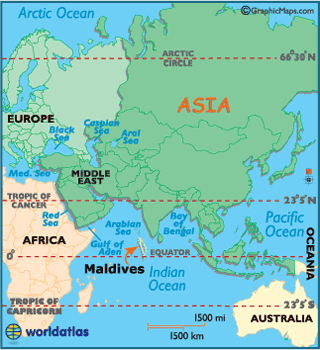Maldives – one of the world's smallest nations consisting of over 1000 coral islands — has been for many a synonym of tourist paradise. Lately, however, it has drawn attention not only from well-off holiday-makers, but also from global news outlets and world leaders worrying about the country’s future.
Maldives has made it to the headlines because of the tormenting conflict between the current government and the country's judiciary. The tense political crisis is a result of the Supreme Court's February ruling to release jailed opposition leaders and reinstate 12 legislators — a move which would remove the control from the parliament, and to the opposition.
In response, the nation's president Abdulla Yameen imposed a state of emergency and ordered arrests of his potential opponents and the Chief Justice of the Supreme Court. This move prompted massive street protests in defense of the Supreme Court and the country's relatively young democracy. The protests have been backed by Mohammed Nasheed — the former president now living in exile in Sri Lanka, who vowed to return to power in the upcoming election. The rivalry of these two leaders, Yameen and Nasheed, has been so central in Maldivian politics that some experts call the country’s political life “a tug of war” between the two leaders.
Thanks to its location, however, of being just off the coast of India, Maldives is a very attractive partner for regional powers which try to keep each other in geopolitical check. On the international arena, Yameen launched a special diplomatic mission to China, Pakistan and Saudi Arabia, countries viewed by him as key partners. On the other hand, Nasheed urged the Indian government to send an expeditionary force to restore the order in the country — in a move similar to a 1988’s military intervention which defended the constitutional order in Maldives.
But given the current geopolitical situation, an intervention may be unlikely. Lately, China has largely strengthened its partnership with Maldives by getting several infrastructural projects completed. Besides, a planned military base just off the Indian shores would give China a geopolitical edge over India's military. China has also projected its power through generous financing of Maldivian foreign debt, and owning 70% of it. Recent foreign policy reorientation has replaced India for China as archipelago's main international partner and ally. A potential international intervention can be seen as a threat to Chinese interests and citizens. To avoid a further escalation, Chinese government called for working out a joint Sino-Indian solution to the problem.
Maldives is yet another area where interests of several major powers collide. India’s historical ties with its neighbor are put on test by the Maldivian foreign policy reorientation, massive Chinese investment, and an influx of Chinese tourists. Maldives provides a great location for a base which would protect international sea routes from piracy, which is crucial for Chinese exports, but also puts India’s naval force in check.
